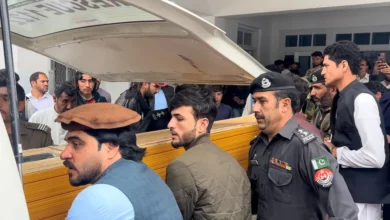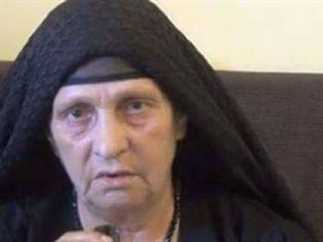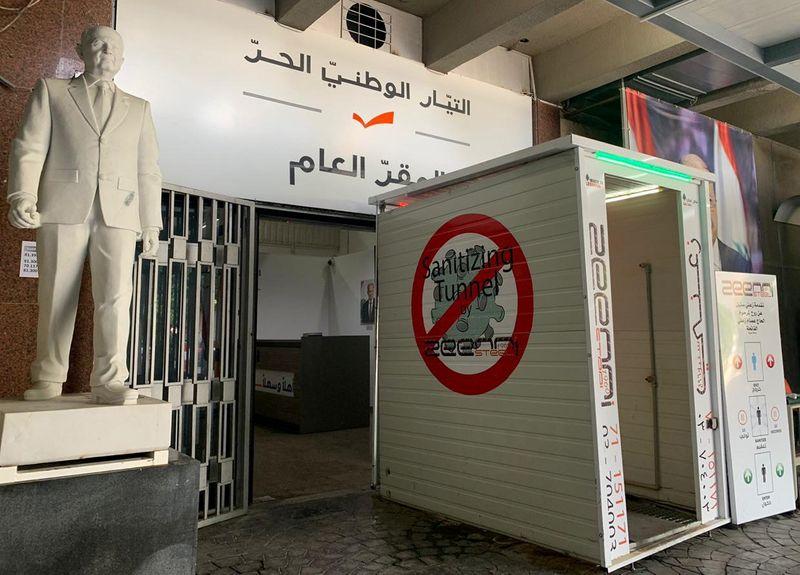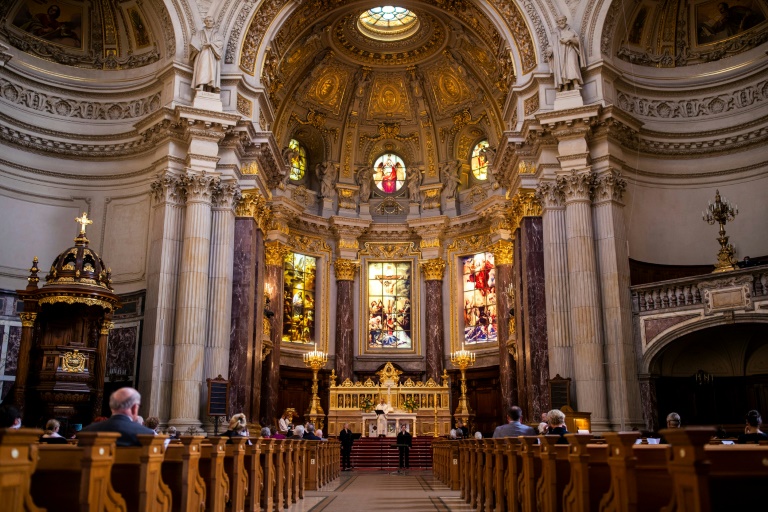Members of the ruling Supreme Council of the Armed Forces denied at a press conference Wednesday that soldiers used weapons or force during a protest that turned violent Sunday, killing at least 26 people.
Major General Adel Emara, assistant defense minister, told reporters during the Nasr City press conference that "the idea of using force is not in our doctrines. We don't do this even in our battles."
He said tear gas was used and defended it as an internationally accepted measure for riot control. However, rights groups have often decried its use against non-violent protesters.
Witnesses, including an Al-Masry Al-Youm reporter, saw armored military vehicles swerve through the crowd of mostly Coptic protesters, who marched toward the state television building, Maspero, to denounce attacks on Christian churches. The vehicles hit and ran over protesters, according to eyewitnesses.
"Never did a man from the armed forces run over anyone. This cannot be attributed to the armed forces," Emara said.
Emara gave his version of the events that were widely captured on film, saying a soldier was driving the armored vehicle to disperse the crowd of protesters when it was set on fire. He added that people threw stones at the vehicle and that the driver was badly injured.
"Imagine, how did this driver feel?" he asked, adding: "The driver moved with the APC [armored personnel carrier] and there was a big group of people in front of him. Perhaps while the car was moving, someone was hit. But it's shameful to say this was systematic. The soldier is not trained to do this. We would have run all of them [the protesters] over."
While showing a video of armored vehicles moving toward the crowd, Emara narrated, "See how they are making sure not to run over anyone?"
Emara said that the military police present during the protest didn't have live ammunition.
"We have facts in front of us. The military police didn't fire at anyone. The armed forces can't directly fire at people. That's because we believe that no one on Egypt's land can dare to fire at the armed forces. The arms of the military are used to kill and not to protect and had we allowed for their use, the results would have been catastrophic."
While Emara repeated that the military police had no live ammunition upon SCAF orders, he repeated that soldiers managed "self-restraint."
Initial hospital reports show most victims were killed either by gunfire or from being run over by military vehicles. Emara questioned those reports and said they are merely licenses for burial, while the results of the real autopsies have not yet been announced.
Emara also accused the protesters of antagonizing the armed forces and possessing firearms, live ammunition, gas cylinders and Molotov cocktails. He showed a video of a protester on top of an armored vehicle attacking soldiers inside. He also showed a video of protesters attacking another soldier and setting civilian cars on fire.
"Some of the injuries of the soldiers are because of civilian gunshots and bullets," Emara said, while showing pictures of lamp posts with bullet holes in front of the Maspero state television building.
He also showed a video at the beginning of the press conference of a priest saying, "We will show Egypt an unprecedented march that the country has never seen before. It will end inside the Maspero building."
Emara said the priest was clearly inciting people. "It's a clear message for using violence," he said.
However, Major General Mahmoud Hegazy, another SCAF member, told journalists that the protest was supposed to be peaceful, unlike Emara's account, which suggests that Copts incited the violence prior to the protest.
"We have soldiers who are martyrs and they were killed with bullets and gunshots. I can't tell if there is a third party at play, but we are sure that there was live ammunition."
Emara said the claim that the armed forces is behind these incidents is illogical as he blamed vague third parties.
"The parties that want to kill this revolution achieve their destructive interests and goals using attractive speeches and under smart headlines in disguise."
Meanwhile, Hegazy also said that the information gathered until now does not show who killed the people. He then added, "Did the armed forces kill them? No they did not, for sure."
Activists have criticized SCAF for not announcing the names or the number of military casualties, questioning the veracity of the council's account.
"We are not keen to mention the names of the martyrs in order not to affect the morale of the army, " Emara said in response.
Hegazy added that soldiers allegedly killed on 28 January when massive protests erupted to demand the end of former President Hosni Mubarak's regime also went unnamed.
"We never revealed their names. There is nothing new there," said Hegazy.




